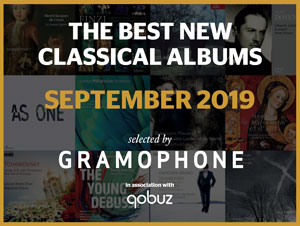Mussorgsky: Khovanshchina at Salzburg Easter Festival | Live Review
Mark Pullinger
Monday, April 14, 2025
Good Morning, Moscow! The McBurneys give Khovanshchina a modern twist
⭐⭐⭐

 (Daniel Okulitch (Schaklowityi) Credit: Tom Visser Design)
(Daniel Okulitch (Schaklowityi) Credit: Tom Visser Design)
'The past in the present – this is my task.' Modest Mussorgsky’s Khovanshchina, subtitled a ‘national music drama’, is no sweeping historical epic, but a sombre meditation on Russian history. It’s a world of conflict, both political (the title means ‘The Khovansky Affair’) and religious, distilling violent uprisings, unrest and gloom in late 17th-century Russia. But Mussorgsky was also reflecting on the lamentable state of his own Russia, two centuries later. Change a few names and the plot still has a familiar ring today. It’s no surprise that Simon McBurney, in his production for the Salzburg Easter Festival, gives the action a contemporary twist.
McBurney had originally been slated to produce the opera in 2022 at the Bolshoi Theatre, which would have been quite the coup. His inspiration came from a speech given by Vladimir Putin on the Bolshoi stage. When McBurney has the scheming boyar Shaklovity call on heaven to give his country a tsar to raise it from misery, he does so from a lectern in front of the famous Bolshoi drop curtain. Holding his arms aloft, his shadow looms large and freezes its position, morphing – thanks to Will Duke’s video designs – into a double-headed eagle. One can only imagine how that would have gone down with Putin.
In the opera, the conservative boyars, led by Prince Ivan Khovansky, rally against the progressive ideas of teen Tsar Peter the Great, whose court is ruled by his older sister, Tsarevna Sophia. Liturgical reforms have caused a schism in the church; Dosifei (a fictional character) leads the Old Believers who, at the end of the opera, self-immolate rather than bow to change, ash tumbling onto the stage, a powerful image.
In McBurney’s modern setting, a co-production with the Metropolitan Opera, Khovansky is an oligarch with his own private army (the historical streltsy of the original plot). The crowd are given flags to wave for the photo opportunity when he addresses them. His son, Andrei, is a flashy celeb. The media is manipulated, the Scrivener becoming a news hack (Good Morning, Moscow!), paid by Shaklovity to entrap the Khovanskys by issuing fake news reports. McBurney is not beyond his own textual manipulation, Ivan’s line 'Through us and the old faith, Russia will rejoice' translated into 'Make Russia great again'.
Religion is exploited for political gain. A messenger, bearer of bad tidings, is coshed to death. Khovansky himself is killed in his own bathtub after a cocaine-snorting Dance of the Persian Slaves Girls (the score’s best known number).
The frequently drunk and desperately disorganised Mussorgsky left the score incomplete on his death and its fragmentary state has caused problems ever since. First his friend Rimsky-Korsakov produced an edition, then Diaghilev commissioned Stravinsky (and Ravel) to complete it for his Ballets Russes. Shostakovich did a completion, orchestrating a vocal score prepared by Pavel Lamm (the edition usually used, along with Stravinsky’s version of the final scene).
Here, scholar Gerard McBurney (Simon’s brother) has made a new completion, bridging the Shostakovich edition with the Stravinsky finale, not entirely convincingly, although the choral setting of Psalm 23 is attractive. Sound artist Tuomas Norvio provides ambient electronics – bells, birdsong, a distant hum – to “weave the fragments together”, but which acts as unnecessary filler and makes Mussorgsky’s score feel even more fragmentary than usual. The most questionable musical idea is giving the herald’s lines pardoning the strelsy to 15-year old treble Daniel Fussek, playing a young Tsar Peter.
Esa-Pekka Salonen conducted a quick, lean, unsentimental account of the score in the Großes Festspielhaus, although the excellent Finnish Radio Symphony Orchestra frequently overpowered individual voices. Woodwind solos were vividly pungent.
The singers were mostly very good, led by fabulous basses Vitalij Kowaljow as Ivan Khovansky and Ain Angur as staunch Old Believer, Dosifei, although Angur tired by the end. Daniel Okulitch’s biting baritone brought the cynical Shaklovity to life, while Thomas Atkins’ ringing tenor suited the shallow Andrei. Wolfgang Ablinger-Sperrhacke wheedled effectively as the Scrivener. Best of all was Russian mezzo Nadezhda Karyazina, a former Royal Opera young artist, as Marfa, former lover of Andrei and a Dosifei acolyte. Her hard-as-nails mezzo filled the house with ease, although she could scale it back for her beautiful Act 3 folk song. A combination of the Slovak Philharmonic Choir and the Bachchor Salzburg sang their choral scenes sonorously.






